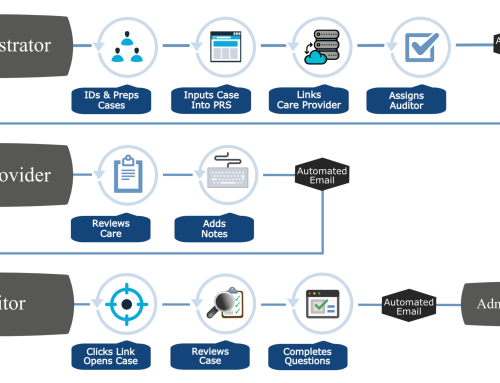Medical case reviews play a crucial role in enhancing quality improvement and patient safety within the healthcare system. They involve a systematic and critical analysis of a patient’s clinical course, diagnosis, treatment, and outcomes. The primary objective is to identify and address any gaps, errors, or areas for improvement. Medical case reviews can be conducted by individual clinicians, peer groups, multidisciplinary teams, or external experts, depending on the purpose and scope of the review.
Importance of Medical Case Reviews
Medical case reviews offer several significant benefits for healthcare providers and patients alike. Let’s explore some of these benefits in detail:
- Improving Clinical Knowledge and Skills: Through medical case reviews, healthcare professionals can learn from best practices and evidence-based guidelines. By critically analyzing various cases, clinicians can expand their knowledge base, stay updated with the latest advancements, and enhance their clinical skills.
- Enhancing Communication and Collaboration: Medical case reviews facilitate communication and collaboration among healthcare professionals. By sharing feedback, insights, and lessons learned from case reviews, healthcare teams can improve their overall teamwork and patient care coordination.
- Promoting a Culture of Accountability and Transparency: Case reviews create a culture of accountability and transparency within healthcare organizations. By acknowledging both strengths and weaknesses, healthcare providers can foster an environment where individuals take responsibility for their actions, learn from mistakes, and work collectively towards improvement.
- Reducing the Risk of Adverse Events and Malpractice Claims: Medical case reviews help in detecting and correcting potential errors or deviations from standards. By identifying and addressing these issues proactively, healthcare providers can reduce the risk of adverse events, improve patient safety, and mitigate malpractice claims.
- Improving Patient Outcomes and Satisfaction: Through comprehensive case reviews, healthcare professionals can deliver high-quality, patient-centered care. By analyzing various aspects of patient cases, including diagnosis, treatment, and outcomes, healthcare providers can identify opportunities for improvement and make evidence-based decisions that lead to better patient outcomes and increased patient satisfaction.
Conducting a Proper Medical Case Review
To conduct a proper medical case review, it is essential to follow a clear and structured process that ensures objectivity, validity, and reliability. Here are some key steps to consider:
- Selecting a Suitable Case: Choose a case for review based on predefined criteria or triggers. It should be representative of the clinical scenario you wish to evaluate or improve.
- Defining Objectives, Scope, and Methodology: Clearly define the objectives, scope, and methodology of the case review. Determine what aspects of the case will be analyzed, the depth of analysis required, and the tools or frameworks to be used.
- Collecting and Analyzing Data: Gather relevant data and information from various sources, such as medical records, interviews, observations, or surveys. Analyze the data systematically, looking for patterns, trends, and potential areas of improvement.
- Comparing Actual Performance with Expectations: Compare the actual performance in the reviewed case with established benchmarks or evidence-based guidelines. This step helps identify any deviations or opportunities for improvement.
- Identifying Problems and Prioritizing Improvements: Identify and prioritize the problems, gaps, or opportunities for improvement that emerge from the case review. Focus on areas that have the most significant impact on patient outcomes and safety.
- Developing and Implementing Action Plans: Develop action plans that address the identified issues. Involve relevant stakeholders and allocate resources as necessary. Implement the action plans and monitor their progress closely.
- Evaluating Effectiveness and Impact: Continuously evaluate the effectiveness and impact of the action plans implemented. Measure outcomes, collect feedback from healthcare professionals involved, and make adjustments as needed.
- Documenting and Disseminating Findings: Document the findings and recommendations of the case review in a clear and concise report. Disseminate the report among relevant stakeholders to ensure transparency, learning, and potential system-wide improvements.
Best Practices for Medical Case Reviews
To ensure that medical case reviews are conducted in a professional and ethical manner, it is important to follow best practices. Consider the following guidelines:
- Involving a Diverse and Qualified Review Team: Assemble a team of reviewers with diverse backgrounds, expertise, and experience relevant to the case being reviewed. This interdisciplinary approach ensures a comprehensive analysis and well-rounded recommendations.
- Seeking Informed Consent: Before accessing a patient’s personal information, seek informed consent from the patient or their representative. Respect patient privacy and confidentiality throughout the case review process.
- Maintaining Confidentiality and Anonymity: Maintain strict confidentiality and anonymity of both the patient and the reviewers involved in the case review. Use secure platforms for data sharing and storage.
- Providing Constructive Feedback: Provide constructive and respectful feedback to the clinicians involved in the case. Emphasize a non-judgmental approach that focuses on improvement rather than blame.
- Fostering a Supportive Environment: Foster a supportive and non-judgmental environment within the organization that encourages learning, open communication, and collaboration. Create opportunities for healthcare professionals to share their experiences and insights.
- Follow-Up and Monitoring: Ensure follow-up on the action plans derived from the case review. Monitor their progress, evaluate their effectiveness, and make adjustments as necessary.
Challenges Addressed by Medical Case Reviews
Proper medical case reviews can alleviate many issues faced by medical directors and hospital administrators. Having the proper oversight and expertise in place to correct and avoid these challenges can lead to cost savings and lower frustration for doctors and hospital administrators.
- State Regulations and Requirement Changes:
- Changes in state regulations and requirements can impact medical review services.
- Some states now require same-state licensing for medical review services, affecting Medicaid, Commercial, and other lines of business.
- These changes can strain internal resources, prompting the need to turn to external vendors for assistance.
- Same State Licenses/Licensing:
- Certain states are now requiring same state licensing for medical cases, extending beyond Medicaid BH cases.
- The need for same state licensing can pose challenges for healthcare providers.
- Same/Similar Subspecialties:
- Same or similar subspecialties may be required for medical appeals.
- Healthcare plans often have MDs available for initial reviews and peer-to-peer consultations.
- However, they may lack the resources or bandwidth to handle appeals, which require a different MD reviewer.
- Appeals may also require a reviewer with the same or similar specialty.
- BHM’s reviewer network includes a wide range of specialties and subspecialties, facilitating effective medical appeals.
- Filling the Gaps:
- Healthcare providers may face gaps in expertise when conducting comprehensive medical case reviews.
- Internal resources may lack the necessary bandwidth or specific specialty knowledge required for thorough reviews.
- BHM offers a solution by providing access to a network of qualified reviewers across various specialties and subspecialties.
- This helps bridge the expertise gaps and ensures more comprehensive and effective case reviews.
By leveraging medical case reviews and partnering with specialized vendors like BHM, healthcare providers can address these pain points and enhance their medical review processes. They can navigate state regulations and licensing requirements more effectively, ensure compliance, and access qualified reviewers with the necessary expertise. Additionally, filling gaps in expertise through external resources enables healthcare providers to conduct more thorough and objective case reviews, resulting in improved patient outcomes and a safer healthcare system overall.
Medical case reviews are invaluable tools for improving quality and safety in healthcare. By conducting thorough and structured case reviews, healthcare providers can learn from their own experiences and those of others, identify and address issues, and ultimately enhance their clinical practice and patient care. By following proper procedures and adhering to best practices, medical case reviews can be conducted effectively and efficiently. This continuous commitment to learning and improvement helps create a safer and more patient-centered healthcare system.
References
- Agency for Healthcare Research and Quality. (2017). Morbidity & Mortality Rounds on the Web (WebM&M).
- Australian Commission on Safety and Quality in Health Care. (2019). Clinical incident management toolkit.
- Canadian Patient Safety Institute. (2019). Canadian Incident Analysis Framework.
- World Health Organization. (2016). WHO Guidelines for Safe Surgery 2009: Safe Surgery Saves Lives.
- Institute for Healthcare Improvement. (2020). Case Review.
| Editor’s Note: BHM Healthcare Solutions offers NCQA consulting services with a perfect track record of success for our clients. Contact BHM for a brief discussion on how BHM achieves success. CLICK HERE |







Leave A Comment